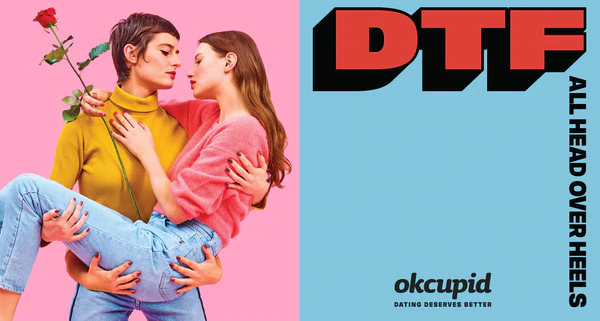
Sponsorship is a healthy communication medium, and many brands are starting to see the value in it. New sponsorship categories can bring additional revenue to rights holders. But partnerships can also negatively affect brand equity, not just for the properties signing them, but also for existing sponsors. Brand transfer is not a one-way street. It can go both from property to brand and between sponsors, influencing how consumers perceive a given brand.
Not surprisingly, many new entrants to sponsorship are from disruptive business models that are coming to maturity.
Adult Entertainment
Pornhub, the most popular pornographic website, has ventured into both sponsorship and brand endorsement in recent years. While the industry’s first initiatives played out on the fringes, more recent partnerships have taken shape with legitimate properties.
Pornhub first aligned itself with extreme sports. It asked athletes to apply for sponsorship using a clever communication strategy. It then partnered with a British football team from the University of Kent (which was soon banned) and a women’s grass hockey team in Australia. These first initiatives were tongue-in-cheek stunts to garner media attention. More recently though, the motorcycle team MV Agusta Racing UK and its rider inked a sponsorship deal with Pornhub. Their press release: “Promising to come first.”
The site has also ventured into the world of fashion. The sold-out Pornhub capsule collection, an apparel line designed by Richardson, was presented at New York Fashion Week in 2017.
Pornhub is not the only player in the adult entertainment industry to venture into sports sponsorship. YouPorn has partnered with adult gaming portal Nutaku.net to launch the first-ever adult eSports tournament (2018). RedTube also caused a minor stir in the football world with a sponsorship mention on the Washington Square FC kit. And Europe has seen French rugby club US Carcassonne team up with the erotic site Jacquie et Michel.
These fringe partnerships created a massive amount of free publicity—no doubt the true aim of an alignment with these teams. However, the adult entertainment industry is a billion-dollar business and it may not be long before we see more serious deals that force rights holders to choose to either accept such brands or forego the money.
Dating Apps
Going out with a stranger that you met online is now a universally accepted concept.
The biggest player in the dating market (no pun intended), Match Group, owns Tinder, which launched in 2012. With reported revenues of $1.7 billion USD in 2018, there is no question that the dating world is big business. Even Facebook has announced a dating feature, which has the potential for enormous traction, considering its 2.38 billion monthly active users.
To support global expansion and attract young people to their platforms, brands in this category must remain top of mind.
Tinder has now aligned itself with the festival space by launching an in-app “festival mode” designed to encourage matches between festival participants in the weeks leading up to events such as Park Life, British Summer Time, The Governors Ball, and Bonnaroo.
OKCupid took a similar approach in 2017. It partnered with the Pitchfork Music Festival, activated the association by showing an event badge on the attending user’s profile, and created an on-site gathering space.
Bumble (owned by Badoo), a dating app in support of female empowerment, partnered with Coachella, one of the most renowned music festivals and arts festivals in the US, to create Winter Bumbleland—where Aspen chic meets desert heat. The brand paid a significant amount of money to have A-list celebrities attend the event, and even had Kendall and Kylie Jenner host the party.
Dating apps have also signed deals with sports properties.
Tinder ventured into the world of sports sponsorship in 2018, signing a multi-year agreement with Manchester City FC, one of the most preeminent brands in soccer, and their sister club, New York City FC. The app is going global and can already be used in 40 different languages. It turns out that a global sports property is an ideal vehicle to promote its services to a larger audience.
And Tinder is not alone. Bumble signed a multi-year, $20 million jersey patch sponsorship deal with the NBA’s LA Clippers in 2018.
In the wake of the MeToo movement (more on this later), OKCupid has taken a different approach. It has started sponsoring the New York Women’s March and has launched a new campaign by tweaking the abbreviation DTF—normally a sexual reference—to lines like “DTFix Dating” (Down to Fix Dating) and “DTFight the Patriarchy (Down to Fight the Patriarchy).”
Properties can use this kind of playful branding to bring associations to life more creatively than they could have with traditional sponsors. However, sponsorship teams must be aware of possible drawbacks as other partners may not be as DTFraternize with such brands.
Smart Speakers
Voice control isn’t simply a new trend or gadget but a whole new ballgame. It is rapidly setting the standard for tech products and becoming omnipresent in our homes, offices, and cars. In fact, voice control has been adopted faster than any other technology in history.
Amazon is currently leading the pack with the largest market share (about 2/3 of the market) with Alexa and Echo devices. It’s estimated that more than 10% of US households are already equipped with a smart speaker.
The massive media campaigns promoting smart speakers during the most recent Super Bowl left no doubt that this category is going mainstream. And the battle between behemoths Apple, Google, and Amazon will most likely carry over into the sponsorship landscape.
A few partnerships have already come to fruition.
Amazon Alexa
Amazon has partnered with the NHL to activate a new command through Alexa, which will give users access to league news, schedules, scores, stats, standings, player profiles, and puck drop reminders for each of the clubs.
Amazon Echo
Amazon partnered with both New York Fashion Week and Coachella (as well as “off parties” like ZOEasis) to promote its Echo Look camera. Aimed at fashion-conscious consumers, the device allows users to ask questions about their look and get feedback on the spot. Who would have thought that the fairy-tale mirror from Snow White would become a reality?
Amazon’s Coachella partnership went beyond the Look Camera. It showcased a section of its online store–called the Coachella Shop–to promote festival must-haves that could be shipped to onsite Amazon Lockers.
Google Home
Google turned to the NBA with a multi-year agreement to become the presenting sponsor of All-Star Voting. This will allow users to cast their vote for best player using their Google Assistant. In addition, Google signed an agreement with the 2019 NBA championship winning Toronto Raptors, as well as with individual players on the team. As this strategy was aimed mostly at the Canadian market, it will be interesting to see if the company replicates the approach elsewhere.
An issue with the voice assistant category is the general lack of knowledge about the devices’ different functions, as people mainly use their devices for simple things like asking about the weather. Partnerships with notable events, such as Fashion Week and Coachella, can help provide a context for the devices’ use and bring a sexier dimension to voice control—something that is lacking when these products are marketed solely as a tech feature.
To this day, traditional sponsorship in this category has been marginal (perhaps due to the bad press around tech companies potentially misusing voice recordings), but we’re predicting an uptick in the next few years, as sponsorship may be an interesting means for tech products to regain their lustre.
Streaming Platforms
While TV viewing habits continue to shift, live sporting events have largely been shielded from the downward trend in TV consumption and even show record levels of viewers.
The competition has been heating up between the large streaming platforms such as YouTube TV, Amazon Prime, and Hulu as well as Dish’s Sling TV, AT&T’s DIRECTV NOW, Sony’s PlayStation Vue, and fuboTV. With original content no longer the sole driver attracting new subscribers, these platforms have turned their focus to live sports and sports-related content to attract paying customers.
YouTube TV (Google)
Touting itself as “cable-free live TV,” YouTube TV competes with Over The Top’s (OTT) virtual recording options.
YouTube first partnered with the NBA as early as 2005. Since then, NBA TV has known huge success with more than 4.5 billion views. In 2018, YouTube and the NBA partnered up again, adding the WNBA and the Minor G League finals to the paid service. For an added fee, YouTube TV subscribers can also access the NBA League Pass. YouTube TV also has agreements with the MLB for the World Series, as well as with two MLS clubs (LA and Seattle).
Hulu
Hulu (Disney), the US streaming service and live TV platform launched in 2017, is also looking to connect with the NBA’s audience by sponsoring the playoffs on TNT. The platform also has a presence in hockey as an official sponsor of the NHL’s Stanley Cup Playoffs and Finals.
Netflix and Amazon Prime
Rivals Netflix and Amazon Prime have taken a different approach. While neither service offers live sports, both have created exclusive content with various sports properties.
Netflix developed the Formula 1 series Drive to Survive in a move by Liberty Media owners to attract younger fans to the sport. The positive reviews point to a huge achievement given that the two biggest names in F1, Ferrari and Mercedes, are absent from the episodes. This is timely for F1, as former boss Bernie Ecclestone’s restrictive approach to digital content prevented potential new viewers from being exposed to the sport.
The streaming service has also taken an interest in soccer, and has partnered with the Juventus Club to produce a documentary. Amazon has announced a similar series featuring the English Premier League, Manchester City.
With streaming services looking to expand beyond their original market to become a global service, large sports sponsorships could become a new norm in their marketing strategies.
Read Part 2 Sponsorship Trends: New Sponsorship Categories
To view all the sources and citations, click here.
Image credit: Wieden+Kennedy
